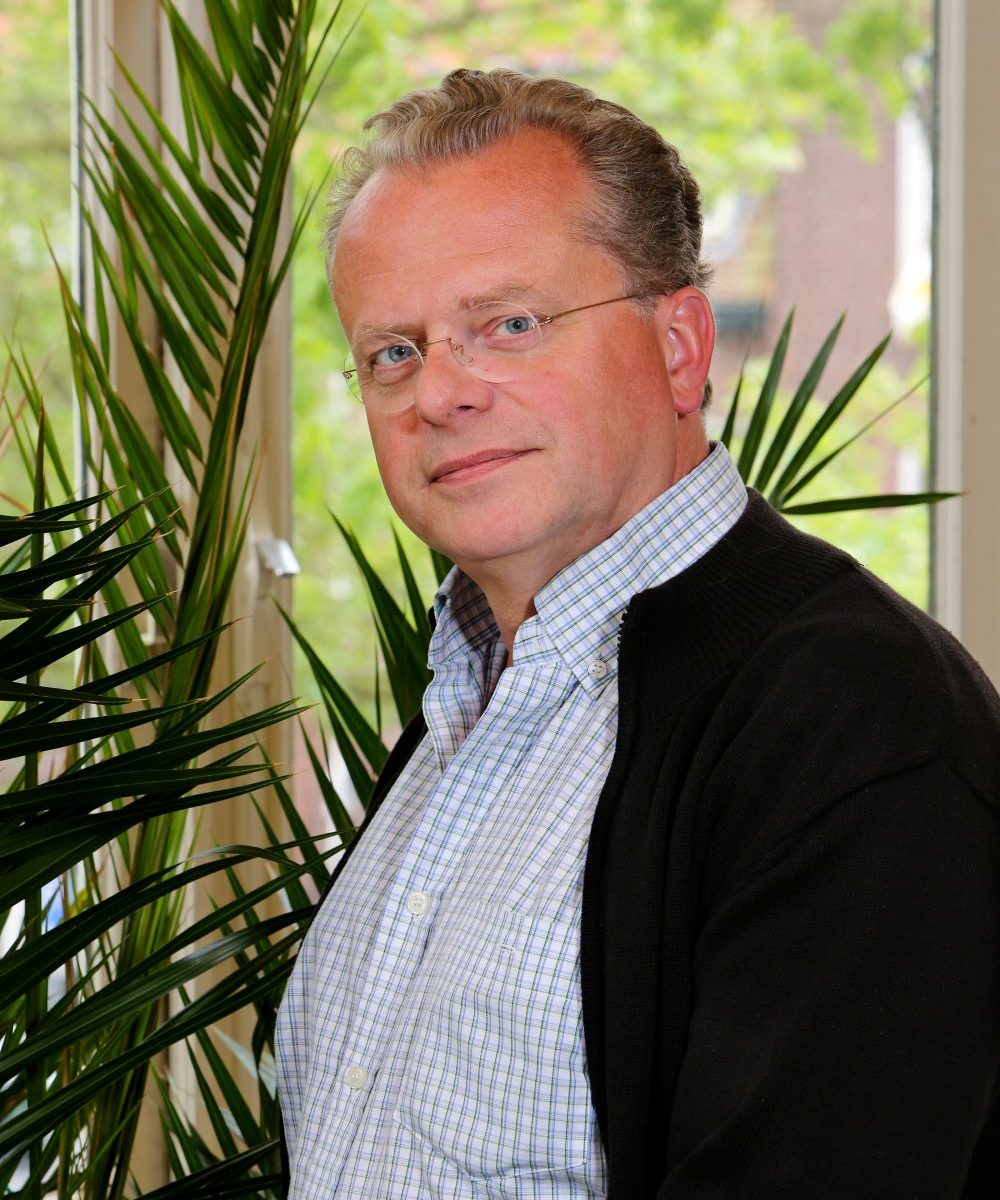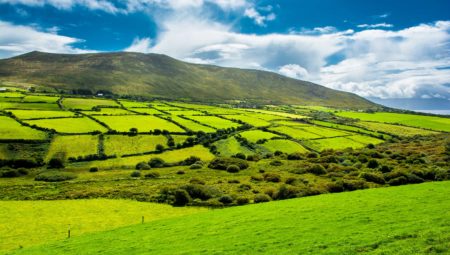Luuk van der Wielen has been commuting between the Irish town of Limerick and Delft in the Netherlands since spring. For four days a week, he is director of the Bernal Institute, an ambitious research institute affiliated with the University of Limerick. Around €86 million has been invested in the institute, which will eventually accommodate more than 500 researchers. Their work concentrates on research into advanced (biobased) materials, production and process engineering and fluid mechanics. One day a week, Van der Wielen is employed at the Delft University of Technology as professor in Bio-economy & Bioprocess Engineering.
Luuk, you have been working in Ireland for almost a year now. Is the bioeconomy high on the agenda in Ireland?
‘Ireland certainly has its sights set on the biobased economy, but it does have a different approach. The country depends to a large degree on the agrifood sector; the chemical sector is not or scarcely present. That is why they are looking more at biobased materials, that is, biocomposites and biofuels. Discussions are currently underway between the Bernal Institute and the Beacon Institute (University College Dublin) on close collaboration in these fields. The interest in biofuels focuses on biobased kerosene for civil aviation. As we speak, the Irish government is working on a consultation. Its focus on the bioeconomy currently still overemphasises the traditional agrifood sector. I would like this focus to be broadened to materials and fuels. I am confident that our suggestions will be incorporated in the government policy. What struck me was that contact on a high level can be made quickly and easily. It does seem that the government is taking science more seriously than in the Netherlands.’
We will come back to that later. Can you also tell us a few success stories that were developed at the Bernal Institute, or is it still too early for that?
‘The Bernal Institute has been operating since 2015 – well before I started there. As far as publicity goes, we had a hit with the research into a protein – lysozyme – that can generate piezoelectricity when pressurised. This protein is present in egg whites and tears, among other things. The latter in particular appeals to the imagination of the media. It also generated 25 million hits on our website. Of course that is good for our name, but in the first instance it is about the scientific impact. The degree of conversion of mechanical energy, that is, pressure, into electricity, can be compared with quartz. This means the proteins should be able to replace the latter in specific applications, such as medical implants. Unlike quartz, lysozyme is not toxic.’
Luuk, as mentioned, you have an international commute between Delft and Limerick. Does the island give you a different perspective on the Dutch bioeconomy?
‘As I said earlier, the communication lines between the government and the business sector/science community in Ireland are shorter. That is only logical, since the country has a substantially smaller population and the government takes the relevant stakeholders more seriously. It is as if in Ireland there is a greater urgency to get a head start on the economy of the future. Let us not forget that Ireland was hit much harder proportionately by the 2008 economic crisis. Many Irish citizens lost their jobs or had to make significant sacrifices. In the Netherlands, we often still ‘potter’ around too much. I miss a clear sense of direction from the Ministry. By putting the ‘Roel Bol group’ (editor’s note: Roel Bol, former director Biobased Economy at the Ministry of Economic Affairs) in the Ministry of Economic Affairs, the momentum and also part of the acquired knowledge and experience seem to have disappeared. That means in turn that the consultation with the stakeholders will not make a distinction between important and less important voices. In the field, ‘we’ are somersaulting over each other. There are many parallel initiatives, such as the various biobased clusters, but the coherence is missing. I understand that the Bioeconomy Federation, with Roel Bol and Dorette Corbey, is trying to pool resources. This exercise will perhaps eventually result in a broadly supported government vision of the bioeconomy.’
Do you feel that is missing at this stage? If so, do you anticipate a ‘change for the better’, in view of the Coalition Agreement (editor’s note: established in October 2017 between four political parties, ed.)?
‘At this moment, there is no broad vision. What I miss is a plan in the style of the National Environmental Policy Plan 4, under which the energy transition arose. (Macro) economic motives for reducing our CO2 footprint are also missing. The CCS (Carbon Capture and Storage, ed.) proposal was a total surprise to me. I remember holding an internal session on CSU (editor’s note: Carbon Capture and Utilisation) versus CCS at the Dutch Ministry of Economic Affairs. In the latter case, you have to invest billions in an activity that provides little or no added value, except for the businesses directly involved in it. By contrast, the use of CO2 for the chemical sector/materials does deliver an economic added value. Surely, we are not going to bury our money in the ground? It seems as if the government has ignored macroeconomic impact studies for too long. It is high time we had a look at them again.’
Does the Dutch government see the bioeconomy more as planet, with the profit (and people) being kept out of the picture?
‘Yes; other governments, for example the Irish and Brazilian governments, actually make the economic impact the key point and examine the consequences for people and the environment at the same time. In Brazil, they are working hard on optimising the yields from various crops and keeping their minds open about non-food applications for fuels, chemicals and materials. Does Brazil already have any commercial biorefineries? No, there are a few pilot plants that, just like the larger second generation bioethanol plants in the United States, are mainly wrestling with the front end of the process. The machines suffer significant wear due to matters such as sand, stones and other objects. The follow-up steps in the biorefinery process are less challenging than the ‘loading’ and pretreatment of the biomass. That is why in Europe, we should also concentrate on this part of the process. The conversion process (editor’s note: into sugars) and the downstream processing are more the domain of separate companies (consortiums) that try to obtain competitive advantages precisely in these domains.’
The development of technology is important, but other, ‘softer’ factors are just as important in a transition. What about social acceptance?
‘I agree. Right from the start at BE-Basic, we paid attention to ‘societal embedding.’ As a scientist, I am open to new technologies, but I do want sufficient proof that these are controllable. A good example is metabolic engineering (editor’s note: synthetic biology), with which production organisms can be ‘trained’ to produce more efficiently or more specifically. That can result in cheaper treatments against cancer, for example affordable monoclonal antibodies, or crops that have better resistance against drought or other factors that limit the yield. You see that start-ups in this area attract significant flows of venture capital. There is huge potential, all the more because the technology is controlled increasingly better, which minimises possible negative side effects. Such technology does need social acceptance, with an emphasis on the benefits for people and society.’
Funding is and remains a controversial matter. Apparently, the larger investors see too many hurdles.
‘I am not familiar enough in this world to give a considered opinion on that aspect. What I do note is that around the world 800 billion euros has been spent on subsidies for fossil, compared with 80 billion euros for renewable raw materials. The playing field is still far from level, and that while companies in the fossil sector, say Shell or RWE, have dropped considerably in value and then appeal to the government for support. Surely that is not the route to follow, considering the Paris Climate Agreement. Why not invest in a large biorefinery in Rotterdam or elsewhere? Yes, that will cost half a billion euros, but in this case the costs precede the benefits. Furthermore, I can see developments from the new economy – especially the financial services – which could possibly propel the bioeconomy forwards differently, free from mandates, taxes or subsidies. The GreenCoin could be such an initiative: an alternative currency, just like BitCoin, which consumers use to purchase more sustainable products or services. I do not know the details, but it is an outside-the-box solution that could have a large impact.’



